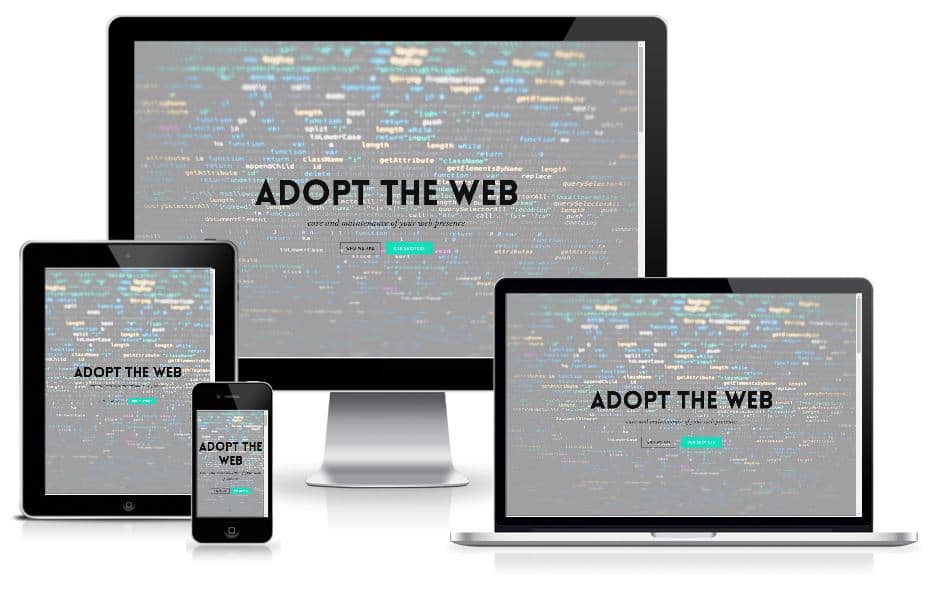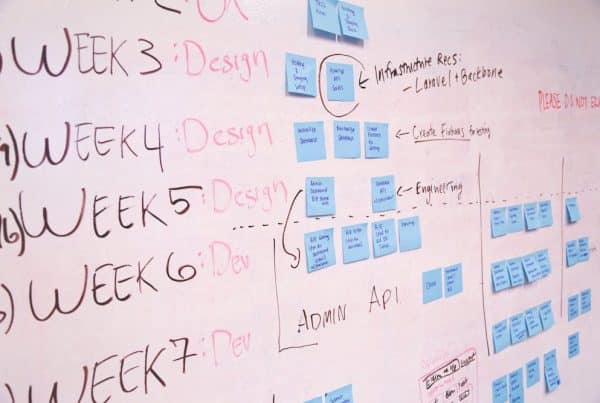It shouldn’t be surprising to you that WordPress is the powerhouse behind more than 43% of the websites on the internet. It’s an excellent choice for creating and managing small blogs and large corporate websites alike. In fact, I recently shared a short read outlining awards and notable websites running WordPress. If you missed that short read, check it out here.
Websites are either powered by Content management systems (CMS) or HTML, and WordPress controls 64% of the CMS websites worldwide. It’s the most popular open-source technology, blogging technology, and Content Management System on the entire internet.
Understanding what WordPress offers is crucial for businesses, developers, and individuals. So, I’ve drafted this article to give you a comprehensive guide on what WordPress is, how it works, and why it could be the perfect solution for your website needs.
Understanding WordPress?
WordPress is a great platform for running a website, whether you’re:
- Looking to be upfront and personal.
- Sharing resources, information, and multimedia content.
- Establishing a corporate, small business, organization, or government entity.
In my over a decade of experience in developing websites, the majority of the websites typically serve to distribute information in a way that’s easy to share. I’ve seen this grow in popularity and demand for website creation and how WordPress has been able to meet those demands.
But What Exactly Is WordPress?
WordPress is open-source software developed with PHP and MySQL as a content management system (CMS). It is free, and you can use it to easily create, edit, publish, and manage website content.
Matt Mullenweg and Mike Little created it in 2003. Over the years, it has evolved through open-sourced improvements, helping create over 470 million websites worldwide.
The WordPress interface makes it easier for users to create websites, create content, and publish it without coding skills. It also features thousands of free WordPress themes and plugins, which you can install and customize to your desired look and functionality.
To know just how much easier it can be with WordPress, read: ‘WordPress vs. Custom Websites.‘
Types of WordPress: WordPress.com vs. WordPress.org
There’s a need to differentiate between these two brands because they run on the same software but serve completely different purposes.
In short, WordPress.org offers way more flexibility than WordPress.com. In contrast, WordPress.com is an easier choice for novices and beginners looking to create a simple website with minimal customization.
WordPress.com
It’s a hosted service, so the WordPress team will cover most of the things you need for your websites, such as hosting, security, and software updates (including themes and plugins).
With WordPress.com, you have access to over 100 free templates or themes. You may choose one depending on your site’s purpose.
It features an easy-to-use interface for creating pages and blogs without worrying about technical stuff like coding.
Is WordPress.com free? Technically, yes, but you’ll need to upgrade to a paid plan to enjoy its features and customization options fully.
WordPress.org
This is a self-hosted platform, meaning that you’re responsible for setting up everything required to run a website, including:
- Acquiring a domain name.
- Choosing a web hosting service.
- Installing WordPress on your server.
- Downloading and installing themes
- Customizing your website’s design and functionality with plugins.
- Managing security, software updates, backups, and more.
WordPress.org offers complete control over your site’s appearance, features, and functionality. You can build any type of website – from personal blogs to large e-commerce stores.
Moreover, WordPress.org is an open-source software, meaning a community of volunteers continuously develops it. So, the platform’s features and capabilities are under constant improvement and innovation.
Is WordPress.org free? Yes, the software itself is free to use. However, it’s on you to source a domain name and hosting.
Depending on your website’s needs and customization requirements, you may also need to pay for premium themes and plugins. For example, if you want to integrate a membership site on your WordPress.org site, you must purchase the necessary plugins.
Is WordPress Good for Small Businesses?
I enjoy the creative side of building websites. The themes and graphic interface are easy to customize with basic point-and-click knowledge. WordPress is a good fit if you can use a mouse and keyboard. It really is that simple!
Beyond the simplicity of drag-and-drop functionality, WordPress is pretty simple in terms of styles and programming. The themes can be further customized using CSS, and you can modify the core functionality with PHP.
I enjoy spending a weekend setting up a new WordPress installation and digging into design/development.
Can Users Install Applications on WordPress?
As mentioned before, the WordPress software is open-source, meaning you can modify and adapt it for different purposes. So, yes, users can install countless applications on WordPress.
Some of the applications that you can install on WordPress include:
1. Plugins and Extensions
No other CMS has a huge library of plugins and extensions like WordPress. You can easily download and install them into your site from the backend admin dashboard.
Plugins help you access functionalities that would otherwise take you massive efforts and resources to code and run, including:
- Contact forms.
- Social media integration.
- Membership systems.
- SEO optimization tools.
- Google Analytics tracking.
- Page builders.
- and many more!
Customization is at your fingertips with these plugins. Plus, most of them are user-friendly and require no coding knowledge to use.
2. Themes and Customization
WordPress also presents you with a massive selection of templates and themes. They allow you to change the appearance of your website with just a few clicks, giving it a professional and modern look.
In addition to pre-made themes, you can also customize your website’s design using CSS and HTML. With this much customization, you can create unique websites that align with your brand’s identity.
The trick is to select lightweight themes that quickly load so users don’t get frustrated waiting and bounce. With some basic coding skills, you can then customize them to suit your specific needs.
3. Widget and Shortcodes
Widgets and shortcodes are small pieces of code that add specific features or functionalities to your website. These may include:
- Social media feeds.
- Newsletter sign-up forms.
- Video players.
- Image carousels.
- Testimonials sections.
Widgets empower you to easily add these elements to your preferred post types. For example, you can call specific widgets for blogs and others for particular pages.
Who wouldn’t enjoy so much flexibility without the need to write a single line of code?
4. Mobile Accessibility
It’s crucial to have a website accessible on all devices, including mobile phones and tablets. Luckily, WordPress offers responsive themes that automatically adjust to different screen sizes, ensuring your website looks great no matter what device it is viewed on.
You can also use plugins to optimize your site for mobile users, such as creating a mobile-friendly menu or adding a click-to-call button for easy contact access. With WordPress, you can provide a seamless experience for your audience across all devices.
Can WordPress Do E-commerce?
Yes, most successful E-commerce websites are powered by WordPress. You can deploy e-commerce capabilities right from the onset when selecting a theme.
You’ll be spoilt for choice when selecting the right e-commerce theme for your business since there’s a vast library of options. The styles, layout, and design will vary, but they all share the same purpose.
You can also choose a theme that doesn’t focus on e-commerce, especially for reasons related to Core Web Vitals. Then, choose ecommerce plugins to supplement your site’s capabilities.
These plugins help you to integrate popular payment gateways like PayPal and Stripe, making it convenient for customers to purchase.
WordPress, also, offers management tools to help you track inventory, manage orders, and handle shipping and taxes. With WordPress, creating an e-commerce website has never been easier.
I’ll Make Your Dream Site Come to Life with WordPress
The best way to summarize is by recommending an extra read: ‘4 Reasons Why WordPress Is So Popular.’ I’ve been in the web design and development industry long enough to work with hundreds of big and small brands.
WordPress powered most of the successful websites for those businesses. Clients prefer it for various reasons, but the most common ones include its flexibility, ease of use, scalability, and cost-effectiveness.
Whether you want to start a blog or create an e-commerce website, I can help make your dream site come to life with WordPress. With my expertise in customizing themes and plugins, we can create a site that is befitting for your brand and user preference. Top that with my SEO and analytical skills, and we can make your site stand out from the competition. I also run the best WordPress hosting for agencies and regular businesses in Kentucky. Let’s collaborate!




